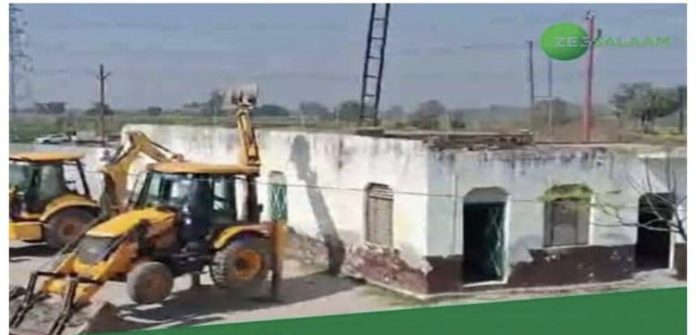In a significant move, the Uttar Pradesh government has initiated a large-scale demolition drive targeting over 350 unrecognized religious structures, including madrassas, mosques, shrines, and Eidgahs, across districts bordering Nepal. The action, carried out on May 10 and 11, spans areas such as Shravasti, Bahraich, Siddharthnagar, Balrampur, Pilibhit, Maharajganj, and Lakhimpur Kheri, reported the Times of India.
According to officials, the majority of these structures were constructed without authorization on government land. In Shravasti alone, authorities sealed 104 madrassas, one mosque, five shrines, and two Eidgahs over two days, with demolition initiated thereafter.
The drive has sparked criticism from various quarters, with concerns raised about the legality and timing of the demolitions. Critics argue that the actions may contravene the Supreme Court’s directives on demolitions and due process.
In a landmark decision in November 2024, the Supreme Court of India condemned the practice of “bulldozer justice,” emphasizing that demolitions must adhere to due process and cannot be carried out arbitrarily. The court stressed that such actions undermine the rule of law and violate citizens’ rights.
Furthermore, the Supreme Court has issued pan-India guidelines to prevent unlawful demolitions, stating that no property can be demolished solely because the owner is an accused or even a convict. The court emphasized the necessity of prior notice and an opportunity for a hearing before any demolition.
The Uttar Pradesh government’s recent actions have raised questions about compliance with these guidelines. In a related case, the Supreme Court issued a notice to the state authorities over the demolition of part of the Madni Mosque in Kushinagar, allegedly carried out without following due legal process.
As the situation unfolds, the balance between enforcing laws against unauthorized constructions and upholding constitutional rights remains a subject of national debate.




